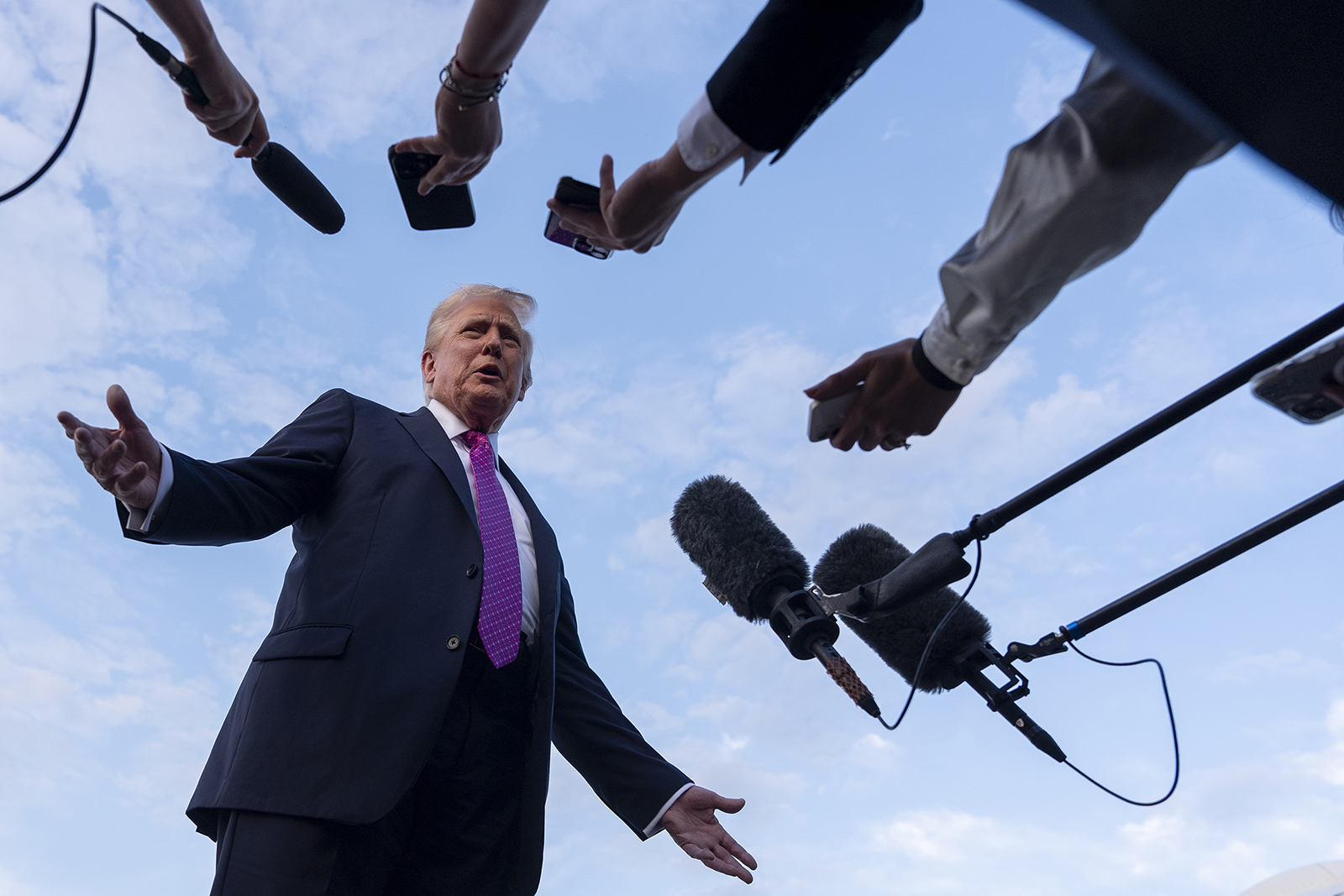Surprising Lessons for the U.S. Resistance to Trump In Sudan’s Recent History
Follow a line south and west from the Gaza Strip, continue through Egypt, and you’ll end up in another place where a genocide is in progress. It’s one we don’t hear much about in the United States, probably because it’s happening in an African nation, one of those places Donald Trump refers to as “shithole countries.” (Interestingly, another of the places he included under that designation during his first term in office was El Salvador, which is run by his new BDF — Best Dictator Friend — Nayib Bukele. Nothing like providing access to your national torture center to get you back on Trump’s A-list, I guess.)
The place I’m talking about is the nation directly south of Egypt and across the Red Sea from Saudi Arabia: Sudan. It’s big — the 15th-largest country in the world and the third-largest in Africa — with an area a quarter the size of the United States and around 50 million inhabitants. Its name derives from the Arabic for “Land of the Blacks.” The population is 70% Arab, with the remainder being mostly of northern and eastern African descent.
Right now, about 45% of those people, 21.2 million of them, “are facing the highest levels of acute food insecurity,” according to the U.N.’s World Food Program. Famine has been confirmed in at least two Sudanese cities, with 20 other areas on the verge of it. And the situation is only expected to worsen next year, as what food stocks exist dry up and the fighting that has ravaged the country since 2019 continues. At least 12 million people have been displaced. To put that in perspective: compared to the ongoing genocide two countries to the north, the number of starving people in Sudan is 10 times the entire population of Gaza, while the number of displaced Sudanese is almost six times that number.
In addition to presenting the world’s worst humanitarian crisis, I suspect the situation in Sudan holds an important warning for the movement opposing Donald Trump in this country. But more on that later.
Where Is the Coverage?
Like many people, I’ve spent the years since Hamas’s October 2023 attack on Israel watching the buildings fall down and bodies pile up in Gaza, even as I kept wishing that the U.S. media would do a better job of describing what was happening there. In the spring of 2024, while American college students risked expulsion and deportation to raise hell about the genocide already underway in Gaza, the New York Times told its journalists to look the other way, as the Intercept reported, restricting the use of terms like “genocide,” “ethnic cleansing,” “occupied territory,” and even “Palestine.”
By December 2024, the Times was doing better. It covered Amnesty International’s 296-page report accusing Israel of “carrying out genocide in Gaza,” despite, in the story’s first sentence, reporting that the accusation had drawn “a rebuke from Israeli officials who denied the claim.” Unfortunately, that story appeared not on the front page of its print edition, but on page eight. By July 2025, the paper was no longer afraid to use the “G” word or run a string of stories and op-eds, including coverage of the U.N.’s determination that Israel “was committing genocide against Palestinians.”
All in all, however, the major U.S. media were slow to recognize the horror unfolding in Gaza. Even now, their coverage of Donald Trump’s and Benjamin Netanyahu’s “peace” plan remains disturbingly credulous.
But if the media were slow to acknowledge an unfolding genocide in Gaza, they have given far less coverage to the one developing in Sudan. An important exception is the work of the Times’s chief African correspondent Declan Walsh who, along with Times staffers, won the 2025 Pulitzer Prize in international reporting for his work on Sudan. Too bad so many of his articles initially appeared not on the front page but inside the paper’s print edition.
What’s Happening in Sudan?
A civil war has raged in Sudan since shortly after a massive, nonviolent popular uprising dislodged Omar al-Bashir, the country’s longtime autocratic ruler, in 2019. The final push to unseat him came from his own security forces. A group of military officers then formed a Transitional Military Council, which initially agreed to establish a transitional government together with organizations like the Sudanese Professionals Association and an umbrella civil society group known as the Forces of Freedom and Change. An executive council and prime minister were sworn in. In October 2019, the National Endowment for Democracy’s Journal of Democracy observed that, “[d]espite these positive developments, doubts remain about the future of the transition.”
Those doubts would prove prescient. Soon after that article appeared, the Sudanese Armed Forces (SAF) overthrew the nascent government and established military rule. Then, in April 2023, an old split in the Sudanese military erupted into open warfare, as a paramilitary group known as the Rapid Support Forces (RSF) turned their weapons on the SAF. Fighting initially developed in and around the capital city of Khartoum, in the center of the country. The SAF eventually drove the RSF out of Khartoum and the conflict moved to the region known as Darfur, the westernmost part of the country, where the RSF had deep roots.
The RSF emerged from the Janjaweed, one of the groups responsible for a genocidal campaign in Darfur between 2003 and 2005. The roots of that genocide, in turn, lay in one of humanity’s most enduring conflicts: the one between nomadic herders and settled farmers, in this case exacerbated by a drought brought on, at least in part, by climate change. The Janjaweed supported the Arab herders against the farmers, who are primarily Black Africans.
The conflict over land use between farmers and herders is an ancient one. Those familiar with the biblical book of Genesis will recognize it in the story of the struggle between the first two sons of Adam and Eve — Cain, a farmer, who killed his shepherd brother, Abel. That tale reflects a tragic struggle rooted in deeply contested scarce resources that would have been as familiar to its original fifth century Middle Eastern readers as it is to twenty-first-century Sudanese.
The civil war now devouring the people of Sudan is also a struggle between two men who were once allies in Sudan’s short-lived military government, with the entire country as their casualty. They are the RSF’s commander Muhammad Hamdan Dagalo Musa, known as Hemedti, and General Abdel Fattah al-Burhan, leader of the SAF. The two of them had worked well together in the government of al-Bashir but fell out over how to integrate Hemedti’s RSF into the Sudanese military.
Having lost Khartoum for 18 months, the RSF besieged the Darfurian city of el-Fasher, surrounding it with an earthen berm, effectively walling in and starving its inhabitants. In October 2025, they finally made their way into the city, massacring civilians (including “500 patients and their companions” in the Saudi Maternity Hospital), while committing mass rape. As the U.N. top relief official Tom Fletcher reported, “Tens of thousands of terrified, starving civilians have fled [the city] or are on the move… Those able to flee — the vast majority women, children, and the elderly — face extortion, rape, and violence on the perilous journey.’”
According to the BBC, “The UN says less than half of the 260,000 people estimated to have been in the city before it fell have been accounted for.” Some have made a 44-mile trek east to a humanitarian hub in Tawilah. Others have gone much farther to a camp in SAF-controlled territory near the town of al-Dabbah, 480 miles northeast of el-Fasher. Along the way, they faced rape, extortion of anything they had left, and possibly death. “The RSF fighters stripped us of everything we had — money, phones, even our nice clothes,” one refugee told a BBC reporter. “At each stop they would make you call your relatives to transfer money to your mobile phone account before they let you move on to the next checkpoint.”
The Role of the U.S. and Its Allies
While the Trump administration hasn’t exactly taken sides in Sudan’s civil war, that doesn’t mean there’s no blood on its hands. When President Trump’s erstwhile First Buddy Elon Musk spent a February 2025 weekend “feeding USAID [the U.S. Agency for International Development] into the wood chipper,” he condemned thousands of people in poor countries to death. As the Washington Post reported, the “impact in Sudan was especially deadly.” In fact, “the World Health Organization says an estimated 5 million Sudanese people may lose access to lifesaving health services as a result of the U.S. cuts.”
“When U.S.-supported soup kitchens were forced to close, babies starved quietly, their mothers said, while older siblings died begging for food. Funding stoppages meant that critical medical supplies were never delivered, doctors said. The lack of U.S.-funded disease response teams has made it harder to contain cholera outbreaks, which are claiming the lives of those already weakened by hunger.”
Sudan is also among the 19 countries for which President Trump has halted immigration applications, meaning that none of the refugees fleeing starvation and genocide there are welcome here. In addition, the U.S. Citizenship and Immigration Services has announced that it plans to “conduct a comprehensive review” of the status of nationals (or indeed naturalized U.S. citizens) who received immigration benefits while Joe Biden was president. This includes several thousand Sudanese immigrants and refugees who arrived in those years. For the time being, Sudanese immigrants retain Temporary Protected Status in this country, which prohibits their being sent back to Sudan, until it expires in October 2026. (Oddly, Trump has revoked TPS for those from the separate nation of South Sudan.)
How are the SAF and RSF sustaining their capacity to fight, despite the country’s economic devastation? Where do the weapons and ammunition come from? As it turns out, a key U.S. ally in the Middle East, the United Arab Emirates (UAE), appears to be the main supplier of arms to the RSF (although its officials deny this). According to Amnesty International, the arms for both sides come from manufacturers in countries that include China, Turkey (a U.S. ally), Russia, and Serbia, in clear violation of the international Arms Trade Treaty and international humanitarian law in general. For the UAE, the motive seems to be maintaining access to the Red Sea, which lies along Sudan’s east coast and is the UAE’s crucial shipping lane. In addition, there’s gold in Sudan, which everybody wants.
After early attempts to facilitate a détente between the two sides, by February 2025, another U.S. ally, Saudi Arabia, had tilted toward the SAF, in a widening rift with its one-time partner the UAE. General al-Burhan visited Saudi Arabia at the invitation of Crown Prince Mohammed Bin Salman. And during the crown prince’s November 2025 White House visit, he appears to have schooled Donald Trump on the Sudanese crisis, prompting the American president to announce that “his Majesty would like me to do something very powerful having to do with Sudan. It was not on my charts to be involved in that.”
I wish I felt a little more sanguine about Trump’s involvement in yet another sanguinary conflict, given his record in conflicts like Gaza and the Russian war in Ukraine.
Warnings for the U.S. Democratic Resistance to Trump?
At the moment in 2019 when a massive nonviolent movement removed Sudan’s dictator, I was heartened by such a triumph of citizen organizing. Here’s something I wrote for TomDispatch then about these “spring stirrings” in Sudan and Algeria:
“Meanwhile in Sudan, weeks of similarly massive popular uprisings have dislodged another autocrat, forcing that country’s military to remove President Omar al-Bashir. He is now reportedly in prison, while a search of his home turned up bags containing more than $100 million in cash.
“As in Algeria, many of the demonstrators are young and in Sudan a majority of them appear to be women. The most organized among them is a group of doctors, other health workers, and lawyers known as the Sudanese Professionals Association. As in Algeria, the key question is whether this movement will be able to hold out against the power of the military until a genuinely civilian government can be installed.”
The answer to that “key question” turned out to be: “Probably not.” In Algeria, the popular uprising known as the Hirak, or “smiles,” movement had indeed succeeded in ousting President Abdelaziz Bouteflika after his two decades in power. Bouteflika resigned in April 2019 and, in December, a new president, Abdelmajid Tebboune, was sworn in. Things have gone downhill there since then, as the multinational think tank Arab Reform Initiative (ARI) reported in 2023: “Algerians’ hopes of a democratic country quickly faded into an aggressive authoritarianism. Today’s reality depicts a country that is back to pre-Bouteflika’s repression.” By 2025, it was clear that the army had become the supreme political power in Algeria.
Last February, the ARI wrote:
“Algeria is currently going through a pivotal period in its political history, marked by the clear return of the army to the management of civilian affairs. This development is part of a process that has been underway since the fall of Bouteflika in 2019, and which has seen the military regime gradually consolidate its hold on civilian institutions while maintaining an increasingly fragile democratic façade.”
As in Egypt almost a decade before, Algeria’s and Sudan’s popular democratic movements managed to dislodge longstanding dictatorships. But in all three cases, the military has since seized political control. In the case of Sudan, this has created the disaster I’ve been describing. Egypt and Algeria have been spared civil war, but they remain under military rule.
This worries me, even as I celebrate the massive and popular movements opposing Donald Trump in this country. Since his second inauguration, I’ve cheered our big No Kings and other demonstrations and delighted in the success of initiatives like the Tesla Takedown. Like many unionists, I’m hopeful that the labor movement will pull together a general strike in 2028, though I wish it could be sooner. If the Trump administration succeeds in contaminating the 2026 midterm elections, through voter intimidation and suppression, along with Supreme Court-supported gerrymandering, such non-electoral strategies will grow more important than ever.
But such extra-electoral tactics require more than a target (the Trump administration). They need a goal. In Sudan, the goal was to replace a dictator with a civilian government. Is Trump’s resignation our goal? Success would, unfortunately, bring JD Vance to the presidency, while leaving in place Trump’s anti-democratic handlers like Steven Miller and Russell Vought.
We need to plan now to maintain civilian rule in the event that Trump’s increasingly autocratic grip is indeed loosened and he is dislodged from his throne. At that moment, we will have created a power vacuum. I worry that the military Pete Hegseth has spent the last 10 months purging of women, people of color, and any taint of “wokeness,” rebuilding it in his own white nationalist image, could be the force to fill that vacuum.
That might seem unimaginable now, but so is almost everything Trump has done since his second inauguration. A military takeover after a citizen uprising has happened before in other countries. We can’t let it happen here.



